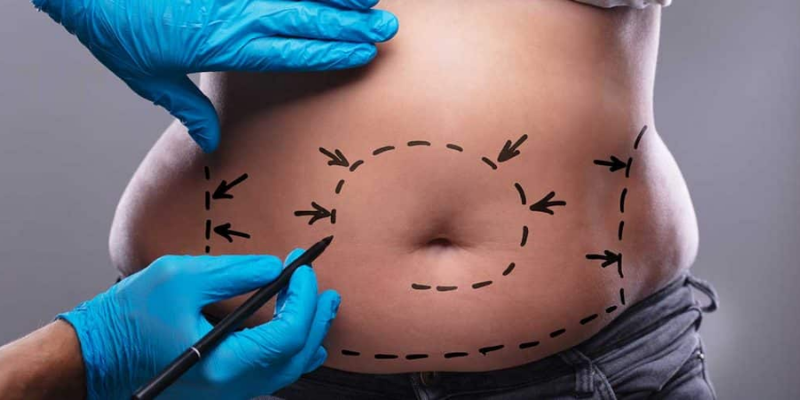Diet Prior To Weightloss Surgery
Even though weight loss surgery can change your life, it’s only the first step to a better one. After the surgery, it’s important to keep making decisions that will help the effects of the surgery last longer and improve your overall health. Getting enough rest, being active often, and eating a healthy, well-balanced diet prior to weightloss surgery are just a few of them. Here’s what you should and shouldn’t do with your diet after weight loss surgery:
First of all, try to eat small amounts. No matter if you had a gastric sleeve surgery or a short-term intragastric balloon put in your stomach, you might not be able to eat as much as you used to. Eat carefully and in small amounts to avoid getting too full or stomach cramps.
Also, make sure to eat a portion of vegetables and fruits with every meal. If your treatment involves moving food from your stomach to the bottom of your small bowel, meals no longer pass through parts of your bowels that help you absorb nutrients. This means that you can’t get all of the micronutrients you need every day.
How To Follow The Best Diet Prior To Weightloss Surgery?
If you eat a low-calorie diet, like you do after bariatric surgery, your body looks for other ways to get fuel. This could make you lose fat, but it could also make you lose muscle. Protein is a type of macronutrient that can help you keep your muscle mass. Since your small gut fills up quickly, eat the protein before each meal to make sure you get enough of it.
Also, don’t go back to eating regular food right away. The surgeon will make a diet plan for you after the procedure based on a number of factors.
Also, don’t drink drinks with carbonation. Hydrocarbons from carbonated drinks can build up in the gut and make it bigger. With more room in your stomach, you may feel more hungry, so drinking carbonated drinks may work against your goal of cutting calories. So, you should know that you shouldn’t drink soda.
Last, don’t drink while you eat. Water in the abdomen speeds up the rate at which your food goes to your small intestine. Dumping syndrome happens when food moves too quickly through your body, causing symptoms like sweating, constipation, bloating, cramps, nausea, a racing heart, and low blood pressure. If you have dumping syndrome often, you should talk to your doctor.
What You Can Eat After Bariatric Surgery?
After bariatric surgery, patients must follow strict rules about what they can and cannot eat. These rules include diets that are low in calories and sugar and high in protein. After surgery, the restrictions on what you can eat will change, but the recovery time is usually short. After two weeks of diet restrictions, most people can go back to eating their favorite foods. People are also told to drink at least 50 ounces of fluid every day.
After bariatric surgery, there are different rules about what you can and can’t eat than there were before surgery. Three small meals will be served each day for the first few days. You will also be told to snack on eight ounces of skim milk and drink between six and eight glasses of water every day. First, you should eat foods with protein and then foods with carbs. During these times, it’s best to really chew each bite. Also, you should avoid fried foods and other heavy, greasy foods.
Patients can slowly start eating solid food again after surgery. After surgery, the stomach will be less than the size of a cup, and the opening will be small. Patients should try new foods in small amounts and wait at least 10 minutes before taking more. This will help them feel less sick. They should also stay away from foods that are high in fat, sugar, and fiber. Patients should stay away from foods that are high in fat and sugar and eat a lot of fibrous vegetables.
Bariatric Diet
When you decide to have surgery, you should talk to your dietitian about what to eat and how to do things after the surgery. During this time, you need to get enough energy, macronutrients, and micronutrients from your diet to help your tissues heal and maintain lean body mass after weight loss surgery. Second, the foods and drinks you eat and drink after surgery should minimize problems like nausea, vomiting, reflux, early fullness or a feeling of being blocked up, and dumping syndrome while helping you lose the most weight possible. In short, you should know that your nutrition plan after surgery is there to help your surgery heal you, not to make you weaker.
Who Can Have Weightloss Diet?
Bariatric surgery is the best way for people who are morbidly obese to lose weight and keep it off. Before surgery, the patient should be looked at by a group of experts from different fields to make sure that the results will last. Again, this team should do follow-up after surgery. The dietitian is a very important part of the follow-up before and after bariatric surgery, as well as in figuring out the nutrition program and evaluating the nutritional status. By looking at the patient’s past habits, doctors can find mistakes, nutritional problems, and make plans for a healthy life after surgery. The most important part of this process is the follow-up after surgery. The importance of nutrition after surgery is a big part of making obesity surgery work better. Researchers have found that people who work with a dietitian after surgery gain weight in a way that lasts.
Drinking After Weightloss Surgery
In order to follow a bariatric diet, you have to drink a lot of water. The most important thing you have is water. You will start drinking clear liquids on the second day. These are liquids that don’t have sugar, grains, caffeine, or carbonation. Some examples are compote juices without sugar, filtered vegetable juices without spices, lean, watered-down meat or chicken broth, and unsweetened lemonade. The main goal here is not just to get a calorie, but also to make sure the body stays hydrated and to get the digestive system going. Aim to drink between 1,500 and 200 ml of liquid every day, so that you can sip 30 to 60 ml of liquid every hour.
Is Surgery for Weight Loss Viable If I Can’t Lose with Diet and Exercise?
If diet and exercise are ineffective in your weight loss journey, speak to your doctor about other options. Surgery for weight loss can be an effective and viable option depending on the individual’s situation. It has been proven to reduce the risk of severe medical conditions associated with obesity, such as type 2 diabetes, heart attack, stroke, and certain types of cancer. Additionally, it can lead to improved quality of life, increased mobility, and greater self-esteem. However, bariatric weight loss surgery should only be considered after careful consideration since it is a significant operation with risks such as infection or complications from anesthesia.

Most doctors will require individuals to have undergone a healthy diet and exercise plan before recommending bariatric surgery. Discussing the various weight loss options with your doctor is key in determining if surgery for weight loss is the right choice for you. Your doctor can also provide information on lifestyle changes that can support the success of any chosen course of action. In addition, they can help you understand any risks that may come with this decision and provide resources so that you feel prepared and supported throughout the process. With guidance from a medical professional, surgery for weight loss could be a helpful step toward achieving your health goals.



